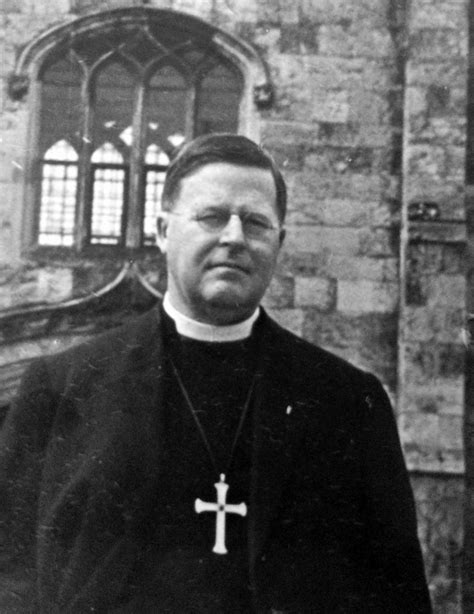A Quote by John Calvin
Original sin, therefore, appears to be a hereditary, depravity and corruption of our nature, diffused through all the parts of the soul, rendering us obnoxious to the divine wrath and producing in us those works which the scripture calls 'works of.
Related Quotes
Every person in the world is by nature a slave to sin. The world, by nature, is held in sin's grip. What a shock to our complacency- that everything of us by nature belongs to sin. Our silences belong to sin, our omissions belong to sin, our talents belong to sin, our actions belong to sin. Every facet of our personalities belong to sin; it own us and dominates us. We are its servants.
Our God is a God of love. He waits with open arms, and the unfolding of His merciful plan of salvation is not only therefore the mark of divine power but also the mark of God's relentless, redeeming love. It is a point well worth pondering because, among other reasons, it will help us to understand better why God, through the prophets, denounces sin and corruption in such scalding terms. He loves all of us, His spirit sons and daughters, but hates our vices. His denunciation of those vices may, if we are not careful, seem to obscure the enormous and perfect love He has for us.
The Scripture, which tells us not to be angry at all, and which says in the thirty-seventh Psalm, Cease from anger, and forsake wrath, and which commands us by the mouth of Paul to put off all these, anger, wrath, malice, blasphemy, filthy communication, would not involve God in the same passion from which it would have us to be altogether free.
When a man is saved by divine grace, he is not wholly cleansed from the corruption of his heart. When we believe in Jesus Christ all our sins are pardoned; yet the power of sin, albeit that it is weakened and kept under by the dominion of the new-born nature which God doth infuse into our souls, doth not cease, but still tarrieth in us, and will do so to our dying day.
When we think of the height of God's infinity we should not despair of His compassion reaching us from such a height; and when we recall the infinite depth of our fall through sin we should not refuse to believe that the virtue which has been killed in us will rise again. For God can accomplish both these things: He can come down and illumine our intellect with spiritual knowledge, and He can raise up the virtue within us and exalt it with Himself through works of righteousness.
When you start witnessing something without thought, there is no obstruction for absorbing the knowledge about that thing because there is no thought. It's complete absorption which takes place. And then it manifests. This is how the Divine Power works within us. So with our gravity, what we do is to touch that depth within us, which can carry the Divine Power and manifest.
works of art feel towards human beings exactly as we do towards ghosts. The transparency of spectres, the diffuseness in space which lets them drift through doors and walls, and their smell of death, disgust us not more than we disgust works of art by our meaninglessness, our diffuseness in time which lets us drift through three score years and ten without a quarter as much significance as a picture establishes instantaneously.
There are a lot of voices inside of us. We have the voices of our parents, our grandparents, our society, our bosses, our own should's and shouldn'ts, and our self-worth is in us, controlling us a lot. When we can get past all of those, and get to the deep, core part of us, there's a voice within our soul that I believe is connected to our Divine or Higher Self. That voice within is there to guide us through all aspects of our lives.
Imagination is the organ through which the soul within us recognizes a soul without us; the spiritual eye by which the mind perceives and converses with the spiritualities of nature under her material forms; which tends to exalt even the senses into soul by discerning a soul in the objects of sense.
Worship is the submission of all our nature to God. It is the quickening of conscience by His holiness; the nourishment of mind with His truth; the purifying of imagination by His Beauty; the opening of the heart to His love; the surrender of will to His purpose - and all of this gathered up in adoration, the most selfless emotion of which our nature is capable and therefore the chief remedy for that self-centeredness which is our original sin and the source of all actual sin.
The works of nature and the works of revelation display religion to mankind in characters so large and visible that those who are not quite blind may in them see and read the first principles and most necessary parts of it and from thence penet into those infinite depths filled with the treasures of wisdom and knowledge.
Though we are commanded to 'wash ourselves', to 'cleanse ourselves from sins', to 'purge ourselves from all our iniquities', yet to imagine that we can do these things by our own efforts is to trample on the cross and grace of Jesus Christ. Whatever God works in us by his grace, he commands us to do as our duty. God works all in us and by us.





































